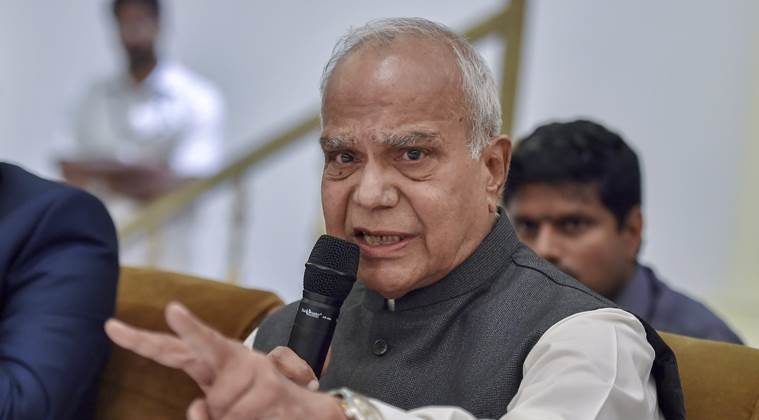The Trouble With Being a Woman, and a Journalist
Tamil Nadu Governor Banwarilal Purohit sparked controversy two weeks back after he patted the cheek of a woman journalist in Chennai towards the end of a press conference when she asked him a question. Later, about 200 journalists wrote to the Governor condemning him for the harassment, and demanded unconditional apology.
Such reactions are rare – women expressing anger at being treated dismissively and fellow journalists coming together when the harasser is a senior, powerful leader.
Yet, the truth is that women journalists are either spoken to condescendingly, or harassed, and it happens very often. Every woman journalist have similar experiences to share.
Fifteen years ago, I was working with The Telegraph, Kolkata, when I had asked the then chief minister Buddhadeb Bhattacharjee a question. There was a major incident in West Bengal and he hadn’t visited the victims – there were expectations and demands from every quarter that he should have. In an earlier case, he had done so, and I reminded him of the incident and asked him why he hadn’t visited the victims’ homes this time. The question was caustic enough to anger Mr Bhattacharjee.
His reply was, “Little girl, who asked you to place this question before me?”
It was true enough that my office had wanted me to ask that question, but there was nothing unusual about it. Every reporter receives briefs from her seniors and bosses to place specific questions before the chief minister and senior bureaucrats.
But when a public representative is faced with that question, s/he has no business to inquire whether the question is the reporter’s own, or was framed by someone else. For one, the question is irrelevant. For another, it makes it more than obvious that the intention is to parry the question. It was easy to see he was being condescending and dismissive.
The following day he told me, “You are like a daughter to me”. Everyone around me – senior journalists from various English and Bengali language dailies – were elated that the chief minister had equated me with his daughter. I somehow managed to protest, which was a faint mumble, “But I would rather be treated as a journalist”, before the doors of the elevator closed and he left Writers’ Buildings for the day.
The senior reporters around you would take you for a rude, arrogant brat if you argued with the perfect gentleman, the Bengali bhadrolok, who had been so kind and unassuming as to treat you like his daughter.
This was soon forgotten, though the then Editor of Bartaman, the late Barun Sengupta, wrote an editorial piece on the episode.
***
Most of us don’t react if it’s not a matter of sexual misdemeanour. It doesn’t anger us enough to do something about it. Only those women who project a tough, aggressive exterior might manage to escape this condescension and infantilization.
But should the treatment of women by persons in power be determined by whether the women are assertive or soft-spoken, aggressive or docile?
What happens when it is a matter of sexual harassment? Do we react even if the politicians and bureaucrats we visit as journalists are misbehaving with us?
I must share this episode. I had visited a bureaucrat last year asking him if he would be part of an event for the release of my book, Out of War: Voices of Surrendered Maoists. Since he has worked in the Jangalmahal region for many years, I thought it would be great if he talked about his experiences at the event. It was the first time I had visited his office, and for the half an hour that I was there, I noticed him looking at me in a way that made me uncomfortable. Every time he wasn’t making eye contact, but continued to look at me, it was more agonizing than the last. I gave him the book to read and left. And never got back.
Why was I there for so long if it was so uncomfortable? I have asked myself that repeatedly. I was trying to tell myself that there had been a mistake, that he was looking elsewhere. And as if to reconfirm this, I stayed on for a little longer, until it happened again, and I had no way of fooling myself anymore.
Women everywhere struggle with this – trying to figure out if they are making a mistake in understanding the harasser’s intentions.
Another time, a bureaucrat had sent me a joke and I went through another prolonged period of struggle, trying to decide how I should “react”. I had discussed this with a friend who said that men often do this to check how far they can push the boundary. And that is why it is so important to react to make them understand what is unacceptable, and what you are not ready to put up with.
Months later, when I read this piece in the New York Times, I read about the “techniques” that harassers use: “A common technique for harassers is to start with inappropriate but relatively benign comments. This allows them to claim they were just joking. They are also testing to see what else they can get away with.”
Have I reacted? Yes.

